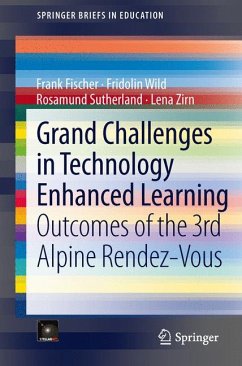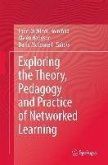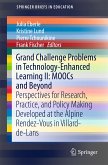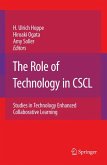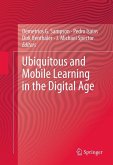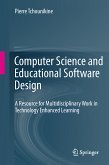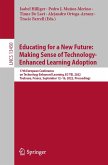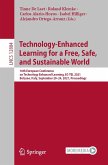This book will inspire everyone interested in TEL and its neighboring disciplines in their future projects. All of the listed problems, first hints with respect to the approach, measurable success indicators and funding sources are outlined. The challenges focus on what noted experts regard as important upcoming, pending, and innovative fields of research, the solution of which is within reach in a timeframe of a mere 2 to 15 years of work.¿
Dieser Download kann aus rechtlichen Gründen nur mit Rechnungsadresse in A, B, BG, CY, CZ, D, DK, EW, E, FIN, F, GR, HR, H, IRL, I, LT, L, LR, M, NL, PL, P, R, S, SLO, SK ausgeliefert werden.
"Grand challenges in technology enhanced learning intends to present the most significant challenges in technology based education. ... This reader-friendly volume will be relevant for researchers, administrators and all professionals in the field of learning technology. Since it has been written especially for people wanting to apply for international projects ... its practicality is unquestionable. ... the book will be of great interest for all those willing to explore new ways and seek new technological challenges." (Jesús García Laborda, British Journal of Educational Technology, Vol. 45 (3), 2014)

